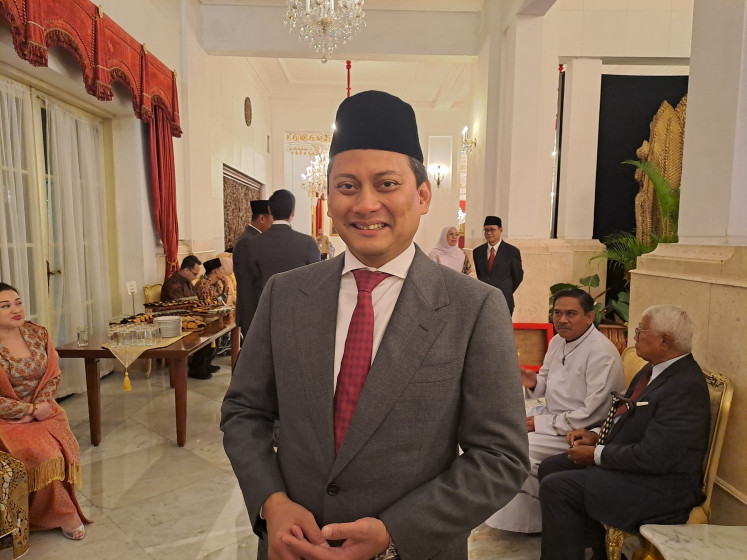Popular Reads
Top Results
Can't find what you're looking for?
View all search resultsPopular Reads
Top Results
Can't find what you're looking for?
View all search resultsSharp aims to stay in lead with new refrigerators
Japanese electronics giant Sharp recently introduced its latest line of refrigerators to target middle and upper income consumers amid increasing competition and slowing demand
Change text size
Gift Premium Articles
to Anyone
J
apanese electronics giant Sharp recently introduced its latest line of refrigerators to target middle and upper income consumers amid increasing competition and slowing demand.
The new Grand Vetro models, using environmentally friendly J-Tech Inverter technology, was expected to consolidate its lead in the refrigerator market, said Andry Adi Utomo, the national sales senior general manager at PT Sharp Electronics Indonesia.
“We hope we can increase our market share by up to 30 percent next year so that Sharp remains in the top position,” he added.
Sharp claims that it has a 26.6 percent of the refrigerator market share, making it the leading brand in Indonesia. However, it has stiff competition from Korean giants LG and Samsung, fellow Japanese firm Panasonic and Indonesia’s own Polytron.
LG and Panasonic have 24 and 12 percent of the market share, respectively.
Sharp expects to sell 60,000 Grand Vetro units annually.
The latest models retail at between Rp 5.6 million (US$392) and Rp 11.6 million with a bigger capacity and more efficient energy consumption than older models. Refrigerator sales have taken up 30 percent of the firm’s total sales so far this year.
Earlier this year, LG launched its own new refrigerator model costing Rp 24 million with an Inverter compressor and Instaview feature that enables the user to check the fridge’s contents without having to open the door.
Meanwhile, Panasonic launched the BB series model with Inverter technology and humidity control at a much cheaper price of around Rp 4 million.
_______________________________________________________________________________________
There is a trend among people in urban areas to prepare their own food, as it is healthier and more economical
_______________________________________________________________________________________
Sharp’s Grand Vetro models are targeted at the middle and upper economic segments in Indonesia.
A study by market research firm DI Marketing showed that electricity saving was one of the biggest concerns when Indonesians decided on a refrigerator.
“There is a trend among people in urban areas to prepare their own food, as it is healthier and more economical,” said Andrew Gultom, Sharps’ product strategy group assistant general manager.
Andri added that Sharp’s strategy to focus on the middle and upper end of the market had helped the company sustain its profitability even as sales slowed this year.
The Electronics Industries Association (Gabel) said sales of electronic goods have declined by 15 percent since 2015, and continued to slow down. Last year, national sales of electronic goods decreased by around 5 percent, and are expected to decrease once more by 2.3 percent this year.
Sharp has a large manufacturing operation in Karawang, West Java, that produces televisions, washing machines and refrigerators. It reported earlier this year that it planned to produce air conditioners, which it currently sources from its Thai operations.
While the factory has a maximum refrigerator producing capacity of 2.5 million units, it currently produces around 1.2 million, with 200,000 for export. (sha)










